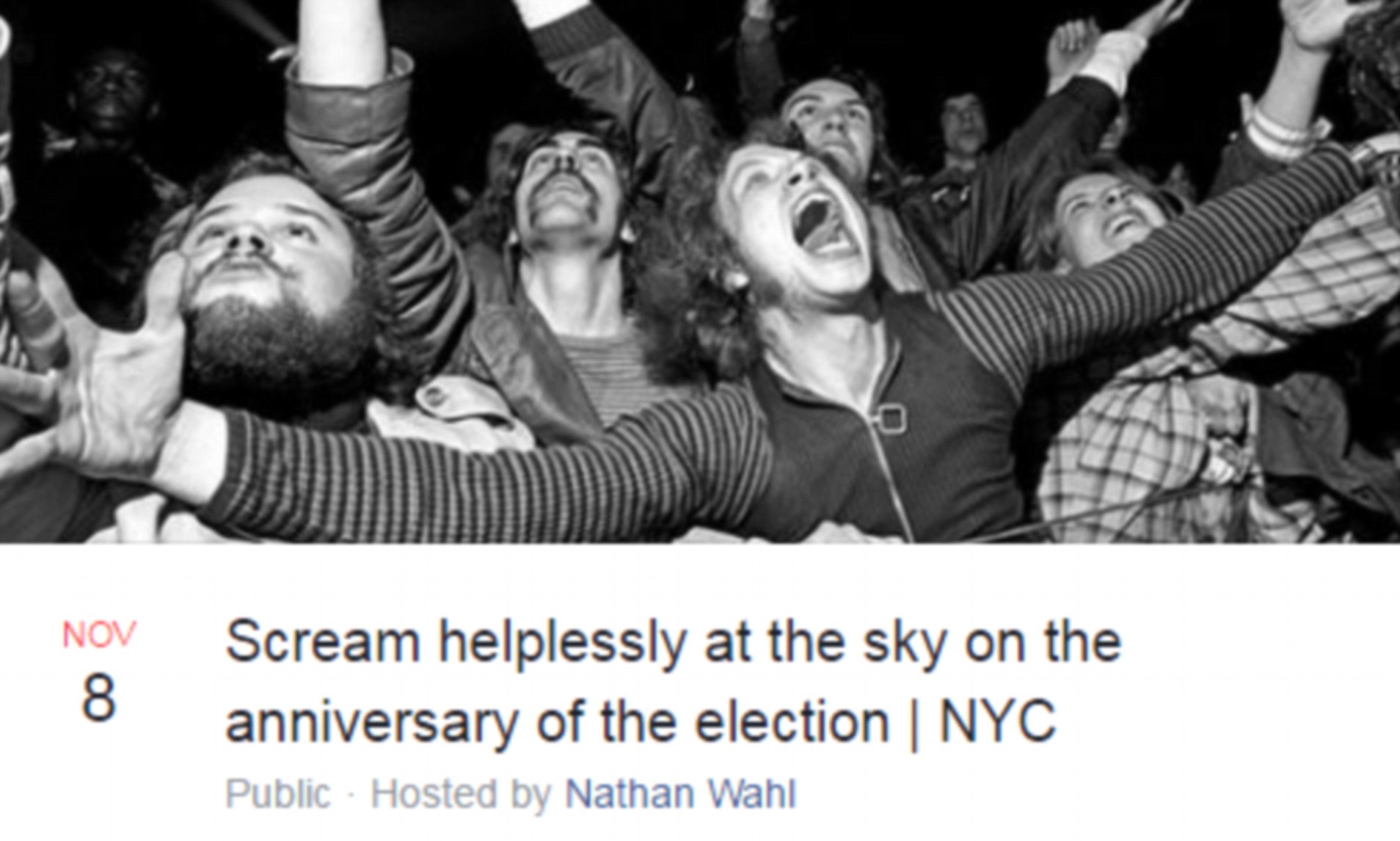“It’s gotta be rock and roll music if you wanna dance with me!” – “It’s gotta be critical theory if you wanna speak out free!”
[This is a long post, published on 31/08/2020 as a draft. I intend editing it considerably mainly by adding graphics and source references. I am publishing the draft first as family circumstances are constraining on my time to write and edit, and the relevance of the post lies precisely in the next two or three months. The final version may be submitted for academic of media publication.]
Liberal and modern Western thought has since the Reformation increasingly subscribed to the notion of heterodoxy in the things of the mind, the heart, the arts, the spirit and the body politic. It has generally resisted any totalitarian attempt to replace diversity in any of these areas with a single strain of acceptable values, behaviour, tastes or expectations – moral or otherwise. “I may not agree with what you say (play, think, aspire to) but will die for your right to do so.” One could be an absolutist within this system as opposed to a relativist, but one could not claim absolute and total right of existence for a single paradigm or style – totalitarianism was not permitted. While there would always be shapes and forms of human expression that were more popular than others, attempts to ruthlessly substitute the new for the old in its entirety were considered illegitimate. In the last three generations, however, there have been at least two phenomena that have challenged this, one in the arts and the other in political thought.
- The music that could not (for a wealth of reasons) co-exist with earlier or wider forms:
Next to the lordship of Jesus Christ in my life, the love of my wife and children, and my commitment to Christian ministry, the great and abiding love of my life has been music. I was blessed to grow up in a home where both Crazy Otto’s piano and Rossini’s William Tell were among our 33 rpm vinyls, and where in the background over the weekends the radio played a wide range of music types and styles. Live church music, from Anglican hymns to Pentecostal choruses to Zulu polyphonic songs was a normal part of my life and still is, and I have sung in the pews and the choirs, and have played music in church (and on street corners) since I was 15. Relevant to this paper: I have also lived through one of the major transitions in the music of Western popular and wider culture: from the Big Bands and solo vocalists and crooners – Sinatra, Como, Reeves and others – to rock and roll via Haley, Berry, and Presley and the pop-groups and vocalists of the 1960’s: Cliff Richards, the Beatles, Elvis in his many iterations, the Beach Boys, Lead Zeppelin – you name it.
Western music had undergone a number of major transitions before, as illustrated in church music and the works commissioned by aristocratic patrons: monophonic and later polyphonic chanting, acapella church music, unaccompanied even by laity and mainly in a minor key. Instrumental and symphonic music developed during the period of the Renaissance and from the time of the Reformation the great Protestant hymnody elevated to popularity large choirs, congregational singing, swelling music and dominant major key formations. This was an influence felt also in the symphonic and domestic music of the day, especially the lighter forms. While these were all major transitions, none of them was absolute and until the 1950’s a large variety of musical types, styles, forms and functions coexisted amicably together in wider Western culture and across the generations. The 1950’s changed all that, as Chuck Berry implies in his own option for the beat from “over the rails”:
Just let me hear some of that rock and roll music
Any old way you choose it
It’s got a backbeat, you can’t lose it
Any old time you use it
It’s gotta be rock and roll music
If you wanna dance with me
If you wanna dance with me
Once the younger generation had tasted the new visceral beats and rhythms, the progression to cultural dominance was inevitable. This was not a style that could co-exist: Bing Crosby, Sinatra and the Big Bands could not compete with nor appear on the same evening programme with Berry, Presley and the Beatles.

From the mid-1970’s all pretence at admitting non-percussive styles to the popular core of heard music was abandoned, and today one cannot even attend a one-day cricket match without being bombarded with loud, brash percussive accompaniment throughout. Even church music has been affected, culminating in the “worship wars” since the 1980’s. Rock and roll music could not co-exist – the beat did something to the hearer which was indispensable and without which there could be no dancing, no singing, no playing, no enthusiasm and no musical celebrity, not even Christian worship. The “stars” were “rock stars” and only rock stars… As Bob Dylan gloated over the wider 1960’s paradigm change:
Come mothers and fathers
Throughout the land
And don’t criticize
What you can’t understand
Your sons and your daughters
Are beyond your command
Your old road is rapidly agin’
Please get out of the new one
If you can’t lend your hand
For the times they are a-changin’
- The social philosophy that today refuses to co-exist with other forms:
The change of music paradigm in the 2nd half of the 20th century has resulted in a massive domination by percussive forms of popular music but has neither philosophically nor structurally demanded (nor been able to demand) absolute conformity. Country music, Christian Western and Southern gospel forms as well as choral forms, African gospel, classical music of all genre including the post-modern and atonal (for which, as the wag said, one day someone will have to atone!) commands respect and popularity across vast swathes of the cultural landscape. As the Blues Brothers said, we present all forms of music: Country and Western! However, as a recently retired seminary and university lecturer, a student of the airwaves and cable music stations, I fear no contradiction in claiming that for most folk under 50, whether in churches, parties, restaurants, lifts (elevators) or any other public and personal space – the dominant force has “gotta be rock and roll music” and its percussive derivatives – even in its slower sentimental or mood music forms, it retains the type of rhythm and structure and lyrics that has become prominent since the age of rock and roll and will be rejected as invalid or undesirable if that were not recognisable. But in the long run, it has come to dominate because it appeals to aspects of the human persona that seem universally to enjoy or even crave it.
The same cannot be said of developments in social thinking during the last 70 years. Critical social theories have emerged that not only claim to be legitimate understandings of human social dynamics, but assert that they can be the only tolerable and even moral understandings, and therefore the only admissible. Let me illustrate with a personal experience: in the late 1980’s I was a participant in a crucial denominational leadership meeting called to discuss the integration of previously segregated entities of a large South African Pentecostal church into a single united church – a process eventually completed in 1996 at a moving public occasion that was broadcast live on national television. I had recently completed a decade of study and research into political theologies, culminating in my first doctoral thesis, a Pentecostal evaluation of the political theology of Jurgen Moltmann. While arguing in support of a warmly contested point, and participating according to the normal rules of debate in such forums, I was suddenly interrupted by a loud outburst from colleague of different ethnicity: “Just listen to this man! Here he sits, steeped in prosperity and privilege – he has no right to speak to us about God and the Bible and assert his own opinions, he just uses them to further enslave us! God and Bible are not his to use, they are concepts that only the poor and oppressed have the right to access, interpret and utilise for their own liberation!” At that stage the interrupter was overruled by the chairman and the vote of the majority, but it was my first sobering encounter in the flesh with what the political and liberation theologians termed the “political hermeneutic.” In the processes of social debate this instrument functions to not only present a contrary understanding of Christian text and theology, but most crucially it seeks to disempower, discredit, disenfranchise and disallow not only the argument but also the person of the opponent. In my naiveté my initial and credulous response to the outburst was “But my friend, everything you personally possess, from the clothes you wear to your home and your vehicle, are items I could never afford!” I had also encountered for the first time the notion that the poor and oppressed are a collective, a “class” of people (today we speak of an “identity”) and not just individuals with little means and no influence.
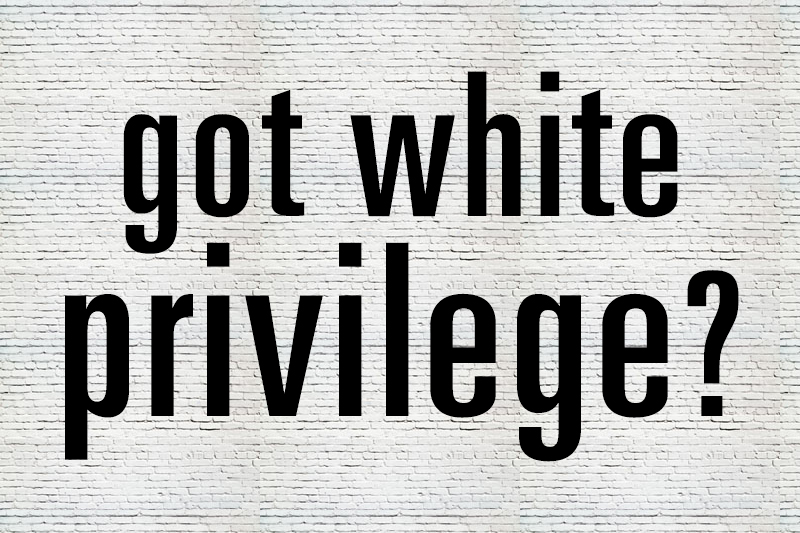
In 2020 in the wider world of culture and politics we are experiencing the full heat of the “cancel culture” and the “de-platforming” movement, the aggressive subversion and marginalisation of intellectuals, speakers, politicians, artists and entertainers who do not support (or at least not enthusiastically enough) this single coherent social theory, ethic, narrative and programme. Not only is any dissenting narrative denied, it is considered immoral even to debate its merits, and without any intellectual engagement the contrary position together with its proponents is rejected as hateful, immoral, impermissible, reactionary and invalid. Indeed in some so-called “liberal” nations the processes of law-enforcement and the judiciary have been granted power to pursue legal penalties against dissenters. In Canada this drew the mild-mannered clinical psychologist Jordan Peterson into the intellectual world’s spotlight (and “cancellation”) when he objected vehemently to “compelled speech”, the Canadian state threatening to use law-enforcement to punish those who declined to use the preferred pronouns of people who now “identified” with an alternative gender to their biological sex.
This presents the current cultural paradigm as a new strict puritan religion. The closest social parallel one can find to this new dominant and wannabe totalitarian process is the religious stance of the Inquisition of the Roman Church in the 15th and 16th centuries: to be fingered as a heretic was to be “cancelled” as a person and your every argument declared anathema and to be purged. In more recent political history it invokes notions of the Cambodian “cleansing” under Pol Pot and the purges of the Chinese Cultural Revolution.
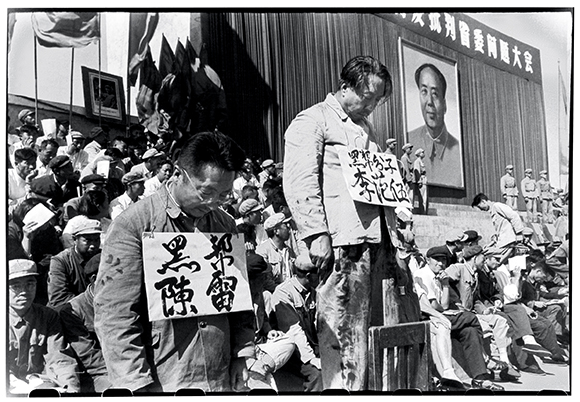
Accused of bearing a resemblance to Mao, Heilongjiang province Governor Li Fanwu?s hair is brutally shaved and torn by zealous young Red Guards in Red Guard Square. Harbin, 12 September 1966
Shamed in public in the Chinese Cultural Revolution
As with rock and roll music (and probably also the sexual revolution) this paradigm was not mainstream in 1951 when I was born. Well-represented in the arts and literary studies in the earlier half of the century, it enjoyed its first massive Western blooming in the 1960’s and 1970’s, while the Reagan-Thatcher years and the fall of the Soviet Bloc seemed to offer some small relief from its intensity. However, with the iconic “Fall of the Wall” event now already 31 years in the past, today we discover that it has merely been a paradigm in waiting – indeed, a generation in training – that has now found its time. Spurred into rage and desperation by the unlikely democratic victories of Trump and Brexit, there is scarcely a tool of cultural influence in the West that has not embraced this new paradigm and enlisted it in their own fight against the Great Satan itself: Trump and the “Trumpians”, and Brexit and the European “nationalists”. From high schools, colleges and universities throughout the West has emerged a generation of youngsters who have faithfully and uncritically imbibed the new paradigm from their mentors and now provide an enthusiastic cadre of workers all too ready to reject the slightest dissent and every dissenter as hateful, immoral, impermissible, reactionary and invalid. And with the fervour of unkind youth they become the determined drivers of the vehicles of purity, demanding an ever more restrictive sphere of “permissible moral conduct” that has now become not just all-consuming but also self-consuming. As the “right-wing” media mock: not even the most “woke” are exempt from being cancelled, being weighed in the balances and found wanting. Yesterday’s front line champions of change are today being devoured by their children. The children who grew up on Harry Potter have turned on his creator and cancelled her because of her insistence that there are only two human sexes/genders.
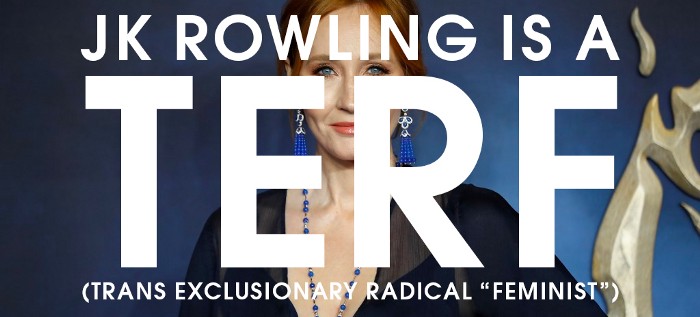
JK Rowling “cancelled” for denying there are more than two human genders
For similar failings two great feminist pioneers of the Boomer era, Greer and Paglia, have been de-platformed at student and contemporary feminist insistence. As in the Reign of Terror in France, the Cambodian uprising, the Cultural Revolution, and in the pages of 1984, you never know who is coming to get you (or often even why), and who will be come for. Unlike the massive popular musical paradigm change to rock and roll, this is a change that is totalitarian – you fail to buy into it with sufficient enthusiasm at your own peril. You will be penalised.
- How did we get to a place where dissent and dissenters have been so successfully “cancelled”? What philosophy and theory drives us?
The movement is too complex in its origins and underpinnings to be dismissed as a simple monolith. However, there is at least one major paradigm that is evident and essential throughout the entire spectrum of the “social justice thrust”, leading to a major consistent outcome which is employed as the major tool in social analysis. The paradigm is Marxism, re-costumed for a post-feudal era, referred to by some as neo-Marxism. And the tool is intersectionality.
- Thinking and acting as though the Marxist way of thinking is the only way of thinking
My presentation in this part of the paper will reflect largely upon the world of church, Christian theology and social ethics, since this is an area ever more intensely permeated since the 1950’s and relates directly to my own life situation and experience. Indeed, Christian theologies aiming at “social justice” have been some of the earliest manifestations of the new paradigm and social tools.
I was born, schooled, trained, qualified and employed for all but ten years of my life in Southern Africa. A descendant of 17th century French Huguenots on my mother’s side and 19th century Yorkshire artisans on my father’s. Among my earliest memories is my mother huddling at night with her three children while the police dealt with riots not so far down the road. The searchlights, gunfire, teargas and shouting terrified me while I was too young to understand. The new militant African Nationalist movement had embraced Marxism and violence which was now visible to us: one night they blew down a pylon just across the valley from us. Their imprisonment and exile through the Rivonia Trials provided the nation with a few decades of relief and prosperity. My own interest in researching the political and liberation theologies developed during eight years of rural ministry in what was Rhodesia, now Zimbabwe. As a young Pentecostal minister I was not at all politically informed or even interested, but was troubled by a real-life conundrum: on Wednesdays I would meet with the Ministers Fraternal representing all the churches in our small town, both evangelical and what we termed “ecumenical.” However, on the other days of the week I (and my wife and later our baby boy) would usually be out on rural roads ministering to farmers and mining communities in a parish about 160 km in radius. We travelled tens of thousands of kilometres in just a few years, on bush roads where at any moment we could encounter an attack by the so-called liberation fighters using landmines, machine-guns or RPG missiles. And these guerrillas were often sheltered, fed and given moral and material support by some of the very same church ministers with whom I lunched on Wednesdays. This baffled me and drove me to find a rational explanation.
Resettled in South Africa in the 1980s as a seminary teacher, for my DTh thesis I therefore chose to research the theology of Jurgen Moltmann, a European political theologian. Here I first encountered the Frankfurt School of Social Criticism, more especially Ernst Bloch whose thinking had been so influential in Moltmann’s early development. This School was formed of critical social theorists who were attempting to “modernise” Marxist categories for a post-feudal and post-industrialist society. The specific context in which Marxist thought and praxis had originally emerged was land-owner or factory-owner versus serf/labourer. However, not only was this by mid-century an out-dated context, it was also too restrictive. The “genius” and indispensable heart of Marxism was its social analysis that viewed human society as collectives in struggle with one another: the oppressed seeking to overthrow the oppressor, seeking to achieve the struggle’s dialectical synthesis in establishing a new order of equitable power-structures and social justice. The Frankfurt School was instrumental in propounding new contexts for the application of this oppressor-oppressed paradigm with its collective “classes” or (later) “identities.” For instance, women too were now identified as an oppressed class, as were Blacks, especially in colonial/post-colonial settings. The Marxist vision and methods remained essentially unaltered, but their target context was now an ever-widening arena of human strivings for liberation. Essential to this system of understanding were the basic concepts of collective classes and/or identities, and the process of revolutionary modification of the oppressive structures into a liberated and socially just synthesis. The Marxist method of early modernity with its full panoply of tools and partners was now released to address the aspirations for freedom of a host of classes, groups and identities who understood their lot to be oppression at the hand of identifiable oppressors.
The political, liberation, Black and revolutionary theologians were among the first to embrace this understanding, and soon ecumenical Christian gatherings and groups became hotbeds for strategizing a new “relevant” role for the institutional church – warriors of social justice. And hence my Rhodesian bush-war conundrum: my Christian social justice peers were supporting my would-be murderers! While ecumenical churches tended to offer more or less succour to the Marxist guerrillas, evangelical and Pentecostal churches and Christians were (as ever in Marxist struggles historically) prime targets of the liberators. The entire personnel of a British Pentecostal mission were bludgeoned to death one night, women and infants included, no more than fifty miles from where we lived. Just eggs for the omelette?

British missionaries murdered in 1978 by Mugabe’s “freedom fighters”
Latin American theologian Fierro (A Militant Gospel, 1977, p109) mentions Moltmann in particular in stating “… the fact is that political theology seems to be operating as if there were no line of reasoning but the Marxist one.” This is because Marxism is a totalitarian system both philosophically and politically, it cannot imagine sharing or moderating its concepts with any other major paradigm. Any spectator of the paradigm wars in social culture in the West today will find Bockmuehl’s assertion cogent: Marxism is “an all-encompassing system of thinking and living, a total conception of the world and humanity… which provides the individual with answers in every sphere of life and which denies the validity of alternative answers in every sphere as well. (My emphasis)” (The Challenge of Marxism: A Christian response, 1980, p16.) Those who think in this Marxist way can only become less tolerant of those who refuse its paradigm and tools. For example: for a number of decades I represented a large South African Pentecostal church at ecumenical seminars and strategy sessions on apartheid and liberation, and would too often be the only person to raise the question (and cause great consternation – how did he get in here!?) “But what if we choose not to think in the Marxist way?” The organisers had never envisioned such an eventuality!
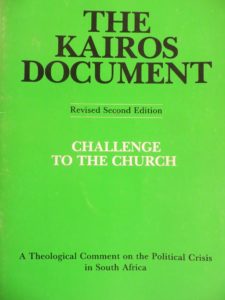
A number of Christian thinkers and groups in South Africa collectively published a document in the 1980’s called The Kairos Document: Challenge to the Church, arguing for greater material involvement (such as support for violent dissent) by Christian churches in support of the liberation struggle. This document illustrated its Marxist presuppositions most clearly in its objection to so-called Church Theology (its name for the paradigm of Reformed and Evangelical thinking): its major and fundamental inadequacy is its failure to perform a social analysis (p13.) In the next pages it spells out precisely what social analysis they deem indispensable: the Marxist critical theory of “oppressor and oppressed” and the obligation to take a political and material “option” for the oppressed against the oppressor. There could be no other way than for liberation or against it – the middle path is culpability of oppression. (This is the argument today of movements such as Black Lives Matter: to fail to support us is to demonstrate racism.)
In passing: when I was asked to reason with the Black pastors of our church with regard to an invitation issued to them to join the South African Council of Churches (a dynamic partner with the liberation struggle), I offered the following analysis and won the day with it: a Christian social analysis would look first and foremost to God via the biblical text to discover how he views humanity in its diverse forms and interactions. It would then direct its mission to humanity in the light of this divine perspective, as part of God’s toolkit for redemption. Liberation theology looks to Marx for its social analysis and for the proposed solution of the problem (revolution) – God, Bible, Church and Christians are then co-opted into an already-formed paradigm and revolutionary campaign. Pentecostals could never be comfortable with relegating God and his people to simple adjuncts and tools for a secularly-defined revolutionary process, which indeed is diametrically opposed in many of its assertions and presuppositions to the plan revealed in the Bible. I used narratives from the life and teaching of Jesus and Paul to flesh out the perspective.
The indispensable word in Marxism is “power.” This is naked, secular, physical and economic power. By Marxist analysis, non-Marxist societies have power seated in the wrong places, and it needs to be relocated. Power in the hands of non-Marxists is a negative that itself needs to be negated by any and all means necessary. The aim is not to understand the world, but to change it. There is neither time nor need to discuss this with anyone, the die is cast, the final product and goal is clear, and every tool is to be utilised in whatever way possible. If folk can be persuaded to cede power democratically and peacefully, well and good. But eventually change of power may well have to come from the barrel of a gun. And once obtained, it is to be retained. There is no moral code under which this must be done – obtaining power and retaining power is the ultimate moral action. Broken eggs and collateral damage are neither here nor there, they happen, the question is that they not happen in vain. This is a cynicism which many non-Marxists fail to detect and they interact with Marxists as though it were not real. Reagan and Thatcher and Pope John Paul II understood it perfectly, and used every tool of financial and military advantage to drive the Soviets into recognition of their complete lack of power in the face of the military and financial might of the West. The brutal power of the Soviet empire’s totalitarian rule was brought low by leaders who did not scruple to confront it with their own real power based on a free and open society. When Donald Trump ordered a Syrian airfield full of Russian aircraft to be bombed at the exact time he is seated at dinner next to the president of China, his guest was well aware of the message of power being conveyed, as was the North Korean leader of the clear threat underlying Trump’s ridicule of his few rockets and “little” launch button, scoff as the Western media may.
There is no room in the Marxist analysis and process for deliberation with contrary viewpoints. The whole notion of the cancel culture is to prevent reasoned debate with dissenters and to protect neophytes from intellectual confusion – any and all contrary or even moderating views are illegitimate. Hence the tactics used on university campuses to prevent dissenters (usually tagged as “far right wing” and “haters”) from presenting speeches or seminars where an alternative non-Marxist point of view can be discussed. It is not just the radical student core that objects strenuously to speakers such as Ben Shapiro, Ann Coulter, Candace Owens and Jordan Peterson offering students an opportunity to hear and debate alternatives; it is their enablers in faculty and administration and far too often also in local civic structures: mayors, governors and other civic leaders who look the other way when dissenters are confronted with violence.
This process in theology has been paralleled in any ever-expanding constellation of other contexts such as feminism, Black Power, and LGBTx liberation. This massive complexity of oppressor/oppressed contexts inevitably raised competing claims for precedence in oppression, and the construction of a multidimensional pyramid of victimhoods and culpabilities – from which developed the analytical tool of intersectionality.
- Identity politics and Intersectionality
If in the new application of the Marxist paradigm society as a whole can be sectioned into numerous oppressor-oppressed collectives, then it is more than likely that sections can intersect when a group or person find themselves located within more than one oppression or oppressor section. As long ago as the 1970’s wags were commenting on the Labour Party’s employment adverts for the City if London: it is clear that the perfect applicant would be a lesbian paraplegic West Indian… Sadly today this has become articulated practice in some places, without a hint of irony, as restitutional or affirmative action is taken to compensate for or overturn victimhoods. An example of a more confusing intersection for the truly “correct” would be when Muslim (racist-) victimhood competes with gay (homophobic-) victimhood. This was demonstrated recently in the UK when Muslim parents in the North West removed their children from state schools in protest against the presentation of LGBTx-friendly instruction. The local officials and police who had handled both “sections” with kid gloves because of “sensitivity” now had to take sides, literally to rank the victimhood of the two – Non-Christian non-Whites versus sexual minorities – and determine which to protect from the other. A correlation to this is the incredibly unlikely (on the face of it) alliance of feminists with Muslims in the West. What fellowship could there possibly be between the champions of the rights of women and the demonstrably oppressive cultural role imposed on women in most Islamic nations and communities? In this case it was probably brought about (like so many present-day unlikely alliances) by opposition to Donald Trump, who apparently hates both women and Muslims… TDS bringing competing victimhoods into an intersectional alliance.
Thanks to Jonathon Haidt for the following graphic depicting the intersection of victims and social culprits (termed here privileges and oppressions.) These are obviously not comprehensive; the defining of oppressions is by no means a completed exercise as new social contexts continue to throw out ever more situations for critical analysis – a major one today would be Christian in the upper space, with non-Christian or equivalent in the lower:
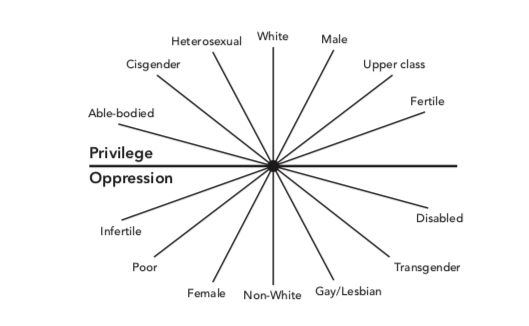
Depending on how complete your diagram is, it can be used to assess the position and associated penalties of a person on a heirarchy of privileges and the same for a person on a ranking of victimhood or oppression, with the associated affirmations and correctives. It is clear on this graphic that a White cisgender heterosexual upper-class male is a truly toxic entity carrying masses of collective guilt, while a poor non-White female infertile lesbian is the ultimate victim. Crucial to bear in mind: this guilt or oppression is not derived from the individual’s character, context, means, aspiration, achievement or status but from their identity derived from the collective in which they are born, feature or represent. Hence, for instance, the pressure for all White folk to admit their “guilt” toward any and all Black folk and the need for some form of restitution (amid great grovelling.) This pyramid of guilt and oppression also explains why it is considered so offensive to claim “All lives matter” or (oh how disgusting!) “White lives matter.” Indeed, it leads to such inane utterances as that recently of a South African politician who claimed that “no Black person anywhere can ever be accused of racism.”
While the entire thought-world of this paradigm deals with humanity as blocks of oppressed and oppressors, it expresses its greatest intolerance against those, especially of the so-called oppressed, who refuse to recognise or remain complacent with their allocated “section.” Guilt and affirmation are only relevant within the wider ideological context of “the only meaningful way to think is the Marxist way.” Feminists could never claim Margaret Thatcher as a woman they would defend or celebrate, since her ideology is antithetical to their values. Neither could Candace Owens (woman and Black) nor Ben Carson (Black) be viewed as “correct” as they support the same ideology and values as Donald Trump. But most dangerously for this ideology, they refuse to view themselves collectivistically as victims as determined by their (inherited) attributes. Many conservative Blacks in the USA are now arguing for Blexit – the exit of Black folk from the parties of the Left where they are consistently viewed as victims requiring patronage – and to break free from the “plantation” where they will forever be seen as lesser beings who could not be free without the intervention of their liberators. The intensity of attack, replete with invective and obscenity and every manner of vitriolic expression including death threats, that is directed against the victims who refuse their victimhood is startling unless you realise just what a threat they are to the entire Marxist/intersectionalty paradigm. A dissidence that cannot easily be refuted, so must be resisted and cancelled.
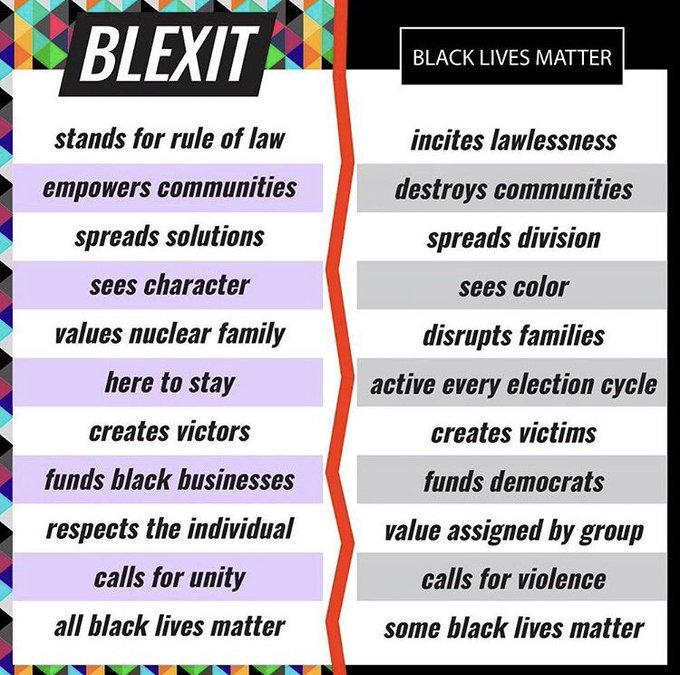
How Black folk who reject the patronage of the parties of the Left distinguish themselves from those who maintain the neo-Marxist intensity of revolutionary fervour
- The state of play – competing philosophies and paradigms in various regions
I have retired from the UK to my home country South Africa, where the government is an alliance of the African National Congress (Marxist since the late 1950’s), the Communist Party, and the Congress of South African Trade Unions. The rulers call each other “comrade” and the ethos of the government is totally Marxist or Leftist liberal (as in e g the UK Labour Party) although the people are not – which caused some weirdness when the returning exiles in the 1990’s introduced abortion on demand and abolished the death penalty, neither of which resonated with the heart of South Africans White or Black. The situation in the 1990’s when world Communism was dealt a huge setback at the end of the division between Western Europe and the Soviet Union, and the militant sponsorship of Marxist regimes by major global players collapsed, compelled South Africans negotiating the end of apartheid to tread a middle road aiming somewhere between Marxist statism and liberal capitalism. Therefore what conservatives are struggling to resist in the culture of the West is already fait accompli here, including the inevitable economic and democratic collapse associated with all such “progressions” – indeed, we are paralleling Mugabe’s Zimbabwe albeit at a somewhat slower pace. This situation in probably irredeemable, as it also appears to be north of the Limpopo – for the ruling parties to change would be for the turkeys to vote for Christmas.
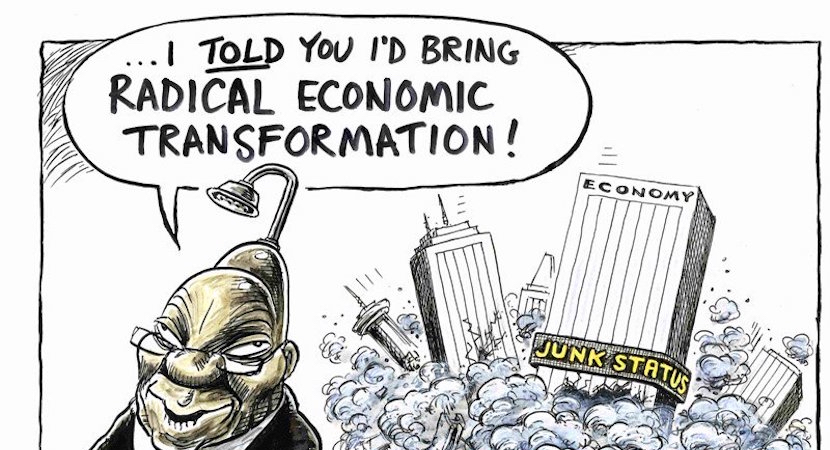
President Jacob Zuma and his croniesplundered South Africa to its knees during a period of “state capture” (the cartoonist called him “Showerhead” because of his claim that taking a shower after sex protected him against HIV)
Western Europe appears to have accepted the new developing state of affairs to a far greater extent than the United States, although recent “populist” developments evidence a stronger than expected preference for individualism and libertarian values than is always reflected in public discourse. As the vote for Brexit in the UK demonstrated, the agents and influencers of public discourse do not always reflect what the average guy or gal is thinking. The once-Marxist Eastern European countries remain resistant to much of the neo-Marxist paradigm; having only recently emerged from Soviet-style centrism and collectivism, they have no trouble identifying the ideology behind the “progressive” moves in the West and want no part of it. However, public dissent from the new paradigm in most of Europe is generally viewed as unlikely and not often tolerated, with many Europeans viewing dissidents such as Brexiteers and Trump supporters as strange alien life-forms. And the amount of effort by European and UK police forces to trace and intimidate ordinary folk who have been deemed to have posted nebulous “hate speech” online is disproportionate – the London Metropolitan force recently assigned 900 officers (during a crime surge) for this purpose alone.
The United Kingdom demonstrates a fading parallel to the United States, in that the individualism implied in their cherished notions of personal liberty still plays a powerful if understated or diminishing role. The British have always been confusing to outsiders, apparently prepared to queue quietly and interminably without complaint, but many of them still aggressively protective of their personal liberties and resistant to any tresspass thereon. The public response to many of the impositions of the lockdown against Covid demonstrates far more resistance to the most intrusive regulations than in many European countries. (In South Africa with its brutal policing you failed to comply with lockdown regulations and police orders at the risk of your life or liberty.) However, in general it appears to have made its peace with most of the impositions against speech, thought and civic positioning introduced by the ever more demanding “correctness” of the Marxist/intersectional progression in public discourse, and its advancement by civic authority and power.
In many ways the USA elections of 2020 will indeed be most crucial not just for that country itself, but for the Western world in general. Nowhere has the challenge and resistance to the new paradigm found more powerful embodiment than in the figure of Donald Trump. Whatever his personal history and characteristics, there is no doubt his election was a blow struck consciously by his supporters against the growing intrusive statist tendencies of popular discourse and the other major party, the Democrats. Yes, it was also a reaction to the cultural decay and dimunition of America as a world power under the rule of Obama, years deemed disastrous for those who have no love for evergrowing and ever intrusive government, and who were proud and not ashamed of the role of America for good in the wider world. “Make America Great Again” resonated with a huge proportion of the American public, catching the ideologically monolithic media, academia, celebrity culture and political establishment – the self-entitled drivers and owners of public discourse – completely unaware, as did the similar much-derided call for an independent Britain in the UK.
Until the outbreak of the Covid 19 virus Trump was viewed as the most likely winner of the 2020 presidential election: under his guidance the American economy had flourished to the benefit of all races and classes, business had boomed under massive reduction in centrist regulation, unemployment reached an all time low, illegal border crossings were massively reduced, the American military found its pride again, and the much-publicised but blatantly biased attempts to derail him politically came to nought. Indeed, commentators serious and comedic were stating that short of a disaster or pandemic, Trump would be untouchable on his record. Which made the arrival of Covid so fortuitous that the inevitable conspiracy theories abound; it seemed just too convenient for his opponents. As the elections approach the view of the public debate for the remote observer (such as this writer living in the green hills of Natal) is astonishing. All pretence of balanced political coverage or expression – always a myth anyway – has been abandoned by the journalistic media, the academic cohort, the entertainment celebrity corps, and the opposition politicians. There is now only one driving focus, to remove Donald Trump, a focus which has existed since he announced his candidacy 4 years ago but which is now seen, thank the gods of viruses, as at last attainable. Even the opposition party at its convention has placed no other programme on display than “We will get rid of Trump!” The Democrat candidate has hunkered safely in obscurity while not only the knives but the entire armoury have been pulled out to complete this now hopefully possible task. See the statistic below from three major journalistic stations in the USA, bearing in mind that the study does not include partisan comments, but journalistic and “expert” input only, i e the opinions of the media’s employees as they reflect editorial policy:
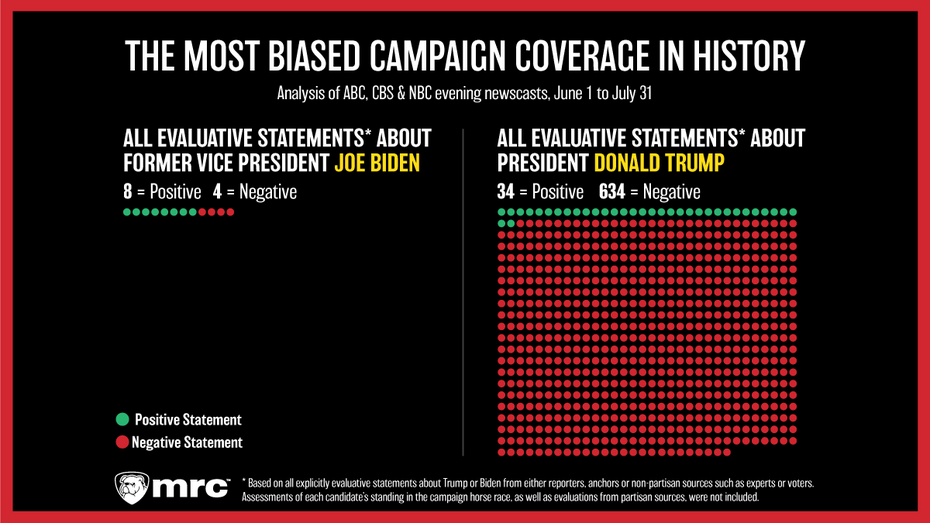
This demonstrates the obvious media-bias against Trump, as it was against Brexit in the UK, and the media support and “cotton-woolling” of Biden who at this time has yet to face a full and testing press conference. As would be expected in the so-called mainstream or establishment media in both countries, the overwhelming political stance of more than 90% of journalists resonates with the new paradigm in national culture. In academia the same proportion exists among faculty and administration, as it does within the culture of Silicon Valley and the major social media giants, and in state-funded high schools among the teaching staff.
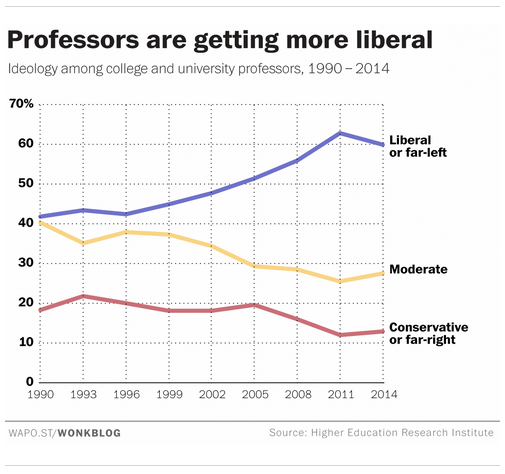
This imbalance in education and social media has existed for many decades now, and it is no coincidence that it is people (mainly White middle class) under 30 years old who provide the main on-the-ground dynamic for our current cancel culture, for activism aimed at keeping the “haters” off campus, for BLM and Antifa riots and violence, for defunding the police, and for keeping conservative comment out of media both social and formal – giving it no oxygen or by using online mobs to “cancel” any with the slightest sniff of incorrectness about them. Truly, for the mothers and fathers, their sons and daughters are beyond their command – the focused allegiance of the youth is to the political analysis and vision of their teachers and professors and favourite celebrities. This includes in ever greater proportions the children of politically and religiously conservative parents.
The sad truth is the institutions of culture and discourse have been won to a single social vision, a vision that tolerates no debate, dissent or scrutiny, that claims that any resistance, disagreement or scepticism toward it is immoral and hateful, that all who fail to join it or comply with it are both fools and knaves, and that firm action must be taken against all reactionaries who seek actively to resist or replace it. It has recruited three decades of school and university graduates to its values and vision and there is little reason to believe the saturation of educational institutions with their agents will change anytime soon. However, while Donald Trump remains president of the world’s leading nation, there is hope that some action might be taken toward at least a beginning of the subversion of such totalitarian thinking upon which later generations can build. Generation Z might come to a completely different ideological conclusion than the Millennials and X’s.
- In conclusion – a life-time’s overview of the ups and downs of this “progression” toward rule with a totalitarian grasp over previously libertarian democratic nations.
I was something of a precocious kid, a voracious reader from the age of five, who grew up in a hugely politicised era and arena. My earliest memory of great international political events was the Suez crisis (my uncle called for the Royal Navy to push the US out of the Eastern Mediterranean!), followed by the space race (from Sputnik to the moon landings), the Cuban missile crisis, the Six-Day War and its 1973 follow-up and resultant peace treaties, the Arab oil-crisis, Palestinian terrorism, Vietnam war, the Reagan and Thatcher and Pope John Paul II years, the end of the Soviet Union, 9/11… until the most recent four years of Trump Derangement Syndrome –and if you imagine there is no such thing, know this: hydroxychloroquine was a harmless anti-malarial drug used by millions in malarial areas around the world with minimal side-effects, until Trump recommended it for Covid – it then became poisonous and perilous beyond belief, to the amazement of those of us who live on a malarial continent where it is bought and used like asprin!
In my own local context of Africa and Southern Africa, when I was born there were no post-colonial African countries. I am a living witness of the progression of surrounding nations from relatively benign political rule by indigenous Europeans or by colonial officers, to the great experiment in African independence. In ten short years the Winds of Change blew us into a plethora of dictatorships by megalomaniacs, and into one-party socialist states that soon became dictatorships and sites of ruinous plunder. This was accompanied by civil war, foreign wars, famines, genocide, epidemics, deaths in the millions, total economic collapse, countless coup d’états, plunder by civilian and military leaders and their comrades, total absence of human rights, and destruction of infrastructure – with in many nations the only major engineering projects being grandiose foreign-funded monuments to the greatness of these rabid architects of Africa’s dissolution and destruction.
South Africa with its millions of indigenous modernised residents of European descent, many with roots in Africa going back far further than those of anyone of American, Canadian or Australian abode, decided to resist this rush to destruction and elected to become a republic outside of the Commonwealth in 1961. It proceeded to act against nationalists of Marxist hue after these bombed Johannesburg station and plotted to flood downtown Johannesburg with burning oil from storage tanks. This brought three decades of relative peace and prosperity, although the collapse of the Portuguese colonial system brought Marxist insurgency to our borders with the implosion of Angola and Mozambique. Eventually South Africa ceded power to a Marxist African government in 1994 and today is but a shell of its former self, with levels of government depredation for personal gain equivalent to those in Nigeria, at more than half of GDP. The effort of millions of modernised White citizens has merely slowed the collapse of infrastructure but the rot continues inexorably toward total economic collapse, especially post-Covid and the ill-considered lock-down policy. In the only military sally of its existence, the new South African Army lost 28 casualties to the Lesotho police in 1998 – this the successor of a proud force that had not lost a major engagement in two world wars or the war against Cuba in Angola, apart from the scandalous surrender of Tobruk during the Desert campaign against Rommel.
In 1965 the colony of Southern Rhodesia took the remarkable step of unilaterally declaring independence from Britain, bringing vengeful response from the UK’s PM Harold Wilson and leading to international sanctions being imposed. Despite this the nation continued as a prosperous modern nation until 1980, when abandoned by South Africa it held an election leading to the government of ZANU-PF and Robert Mugabe. Within 10 years he had attempted genocide against the hated Ndebele nation, imposed a form of socialism and bankrupted the nation, driving the largest and best-educated Black middle class of any African nation to destruction and exile. The Rhodesian dollar dropped from 1 Rhodesian dollar = 1.3 US dollars to a rate of 1 US dollar = 35 000 Zim dollars, under his enlightened rule. Today Zimbabwe appears to be an irredeemable economic, social and political ruin.
I lived through both of these processes, spending the last eight years of Rhodesia as a Pentecostal minister in the Bush War against Mugabe’s terrorists, but most of my life at the time was in South Africa. My wife’s family who remained in Zimbabwe after Mugabe’s take-over eventually left in the mid-2000’s, having lost everything – my sister-in-law arrived in the UK with a suitcase and a guitar and no money at all.
In the light of this life experience, of a career which embraced Christian ministry and academic life in large universities, and involved in any number of interactions in Africa between the races on many platforms, I conclude by listing why I remain personally convinced that the direction the West is taking toward the totalitarian ideology of neo-Marxism and intersectionality, is a pathway to ruin:
- Lesson of the last century: Socialism does not work politically, culturally or economically
Western high school and university students today have no memory of the Cold War and how it ended in the fall of the Wall and the dissolution of the Soviet bloc. Since they also seem not be taught any meaningful national or world history other than the ideologically “correct” social justice perspective, they may be excused for not learning from 20th century history. What they could have learned is that not a single national Marxist success story has emerged after a century of experimentation, and that the result of the failed attempts carried with it a massive social, economic, ecological, political, psychological toll, indeed the cost of millions of lives, most of these wantonly culled in that breaking of eggs apparently so essential to preparing the utopian socialist omelette. Just the death toll alone is staggering: under Stalin, at least 26 million executed including his entire Army officer corps slaughtered just before the Germans invaded in 1941; under Mao in China, 26 million as mere collateral damage in a single revolutionary project, the Great Leap Forward of the mid-1950’s. The Killing Fields of Pol Pot’s Cambodia contributed at least 3 million. These are the most notorious examples, millions more died in the labour, death and re-education camps of Marxist regimes around the world, and ideologically-created famines as in one-time Marxist Ethiopia accounted for millions more. Today still millions of Muslims are incarcerated and dying in slave-labour camps in mainland China, and the situation in North Korea beggars belief as an entire nation is kept brutally in Mordor itself.
In Africa not a single nation that has experimented with any form of socialism has prospered. Some have emerged and struggled in later attempts to rescue their nations from Marxist destruction. Most still remain economic and political basket-cases. The same holds for Latin America, with the recent destruction of Venezuela the latest trophy in the Marxist show-case, while next-door Cuba is the long-term poor-man of the Caribbean under enlightened Marxist rule. Each and every one of these countries has been marked by a massive outflow of economic and political refugees, including the entire middle class in their millions, with their skills.
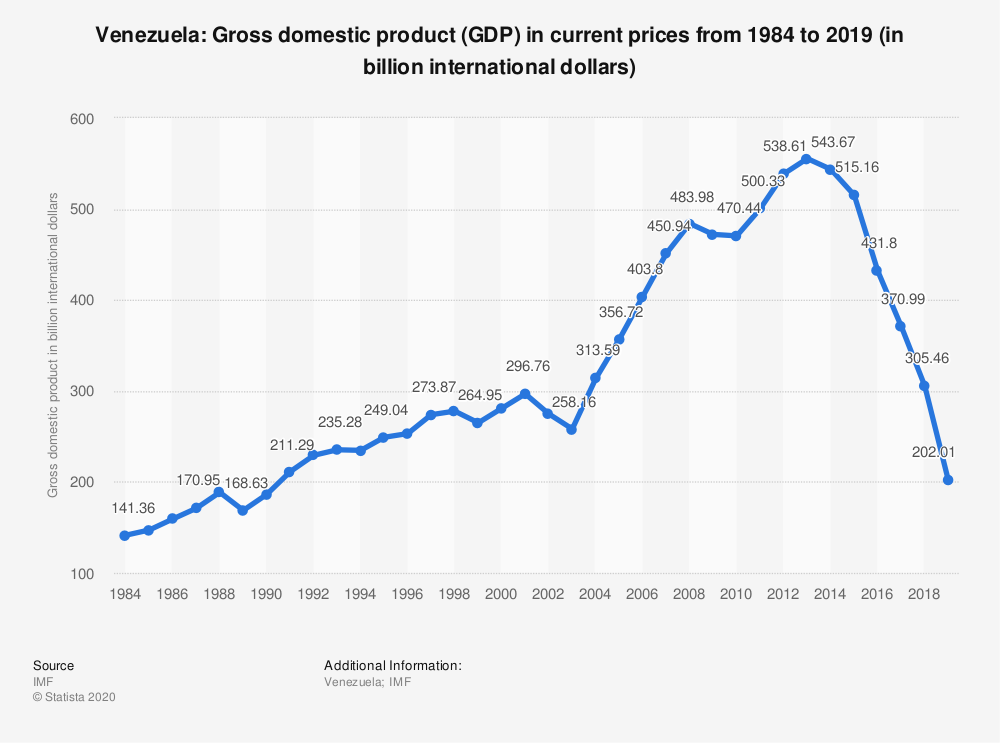
What happened to Venezuela’s GDP after the inception of socialism under Chavez and Maduro. Zimbabwe was even more catastrophic under Mugabe.
How have the indoctrinators in the education complex managed to foist such a blatantly disastrous ideology on our youth? Where are the adult and erudite dissenters? It appears that academia, like entertainment and journalism, has become so mono-ideological that only a fraction of non-conforming professionals remain in tenure, and these along with dissenting students are in continual danger of being “cancelled.” As in most revolutions, and in post-revolutionary purges such as the Cultural Revolution in China, the worst thing to happen in such a context is to be reported as not ideologically pure. Fear of consequences has silenced those who might have been the redemption of generations of duped youngsters, because any voice that subverts Marxist critical theory is cancelled as hate speech, condemned as nothing more than a display of those –isms and –phobias that demonstrate privilege, and to be stifled by any and all means necessary.
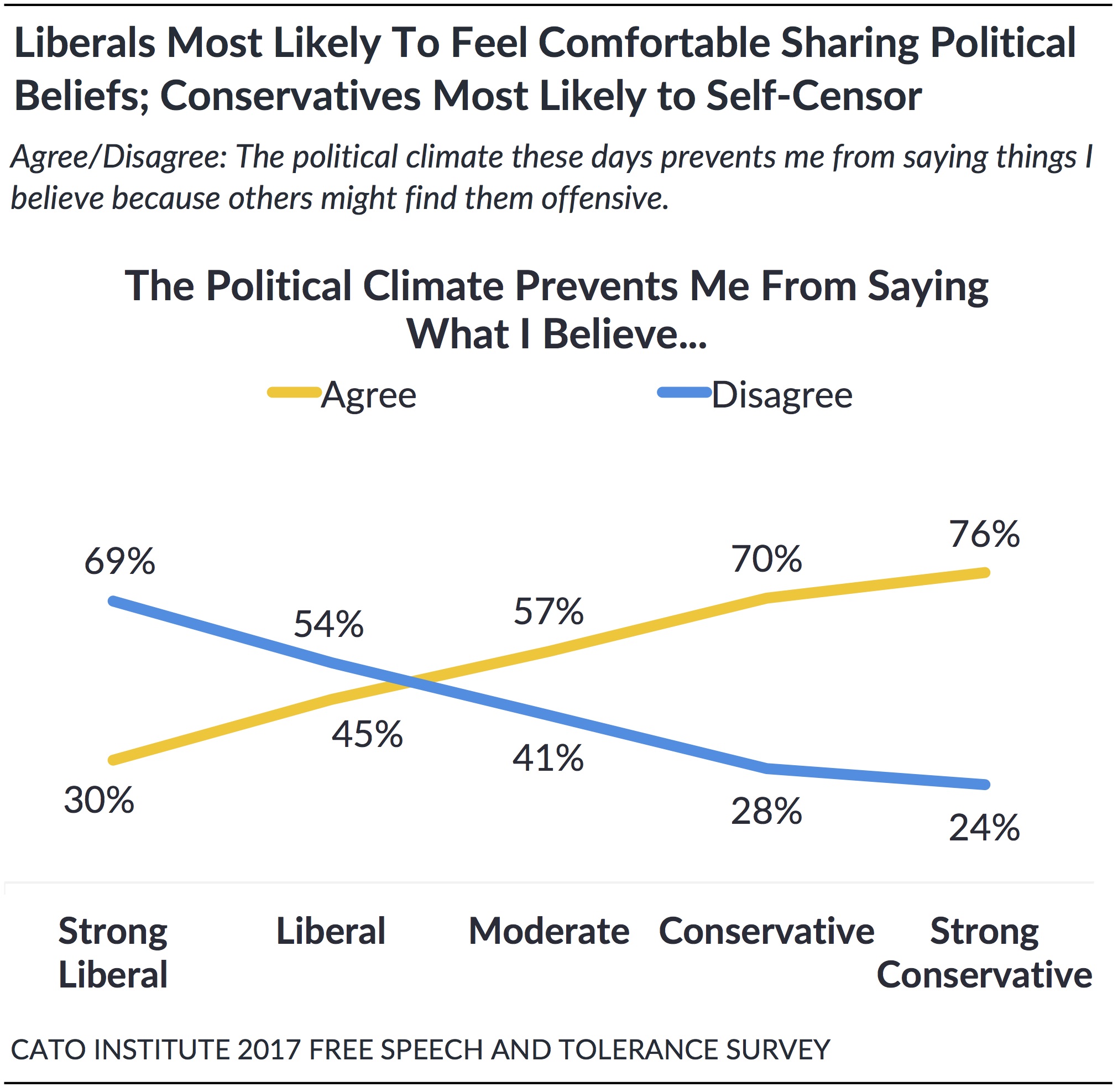
The end of controlling free expression by means of fear is either darkly Orwellian or a popular rebellion against the “correctness” culture that spawned it
- State or institutional control of human thought and expression has a short shelf life
Totalitarian state rule, even if ostensibly aimed at the mutual benefit of all citizens, inevitably assumes to itself greater and greater control over the processes of human thought and culture. Language and terminology need to be controlled to avoid wrong-speak. Research, especially empirical research, needs to be controlled so as not to produce “incorrect” or inconvenient findings. Publications are fine-combed and those that may subvert the current ideology are to be purged, as is public expression of culture such as monuments and art-works. One of the most subversive Christian activities in the 20th century was smuggling Bibles across the Iron Curtain and into China and its satellites where it was perhaps the most “incorrect” publication. “News” outlets need to be controlled or eradicated so that neither information nor opinion detrimental to the enlightened project can find circulation, or narratives that do not conform to the party line. Continual purges are required to ensure ideological purity remains untainted, often with the youth utilised as the People’s storm-troopers aggressively attacking and shaming older more complacent “reactionaries.”
For many in the last century this type of control overcame a nation or culture through a cataclysmic revolution. Overnight you would find that opening your mouth on the most apparently innocent topic could cost you your life. However in the last 60 years in Western nations it has been gradually and apparently willingly imbibed by entire national cultures. Individuals have learned to use only “correct” terminology even in informal discourse. “You can’t say that!” has become a common and stultifying objection. Comedians in particular are decrying the inevitable constraints this places on their staple presentations – the “correct” will not or are scared to laugh, least of all at themselves. There are topics where folk just won’t go for fear of repercussions, attitudes they will conceal, preferences they will abandon, cultural activities they will forgo, merely because someone will “be offended” or “we are too enlightened today for that!” Indeed a major problem for pollsters is the reluctance of folk to state their preference for the conservative option in politics such as whether intending to vote for Trump or Brexit or not.
This is not a situation human society willing accepts for any length of time. As more and more freedom is lost, as individual expression and aspiration become ever more fraught with negative consequences, subversion finds its way into the human spirit. For many it simply how they react: force me to do something or forbid me to do it, and I will opt for the opposite. For others it is the lure of forbidden fruit, the temptation to try something forbidden. For others it is a committed attempt to escape the suffocating ambience of micro-controlled society and push with whatever tools they have to escape or overthrow it. What history teaches is us is that when the system eventually collapses, as it will, there is almost universal rejoicing. The “liberators” and all their works are cast on the ash-heap of history – until next time.
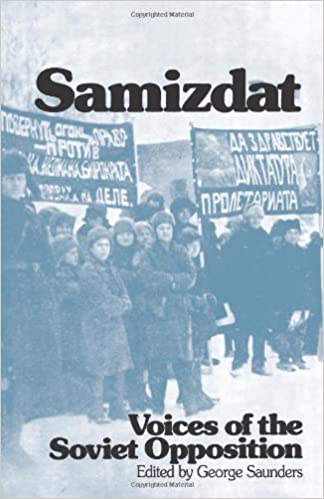
Subversive alternative newspapers proliferated in the USSR, the Samizdats, offering something other than state propaganda.
- All surrounding examples of more libertarian cultures need to be excluded or eradicated
Post-war Germany was a political lesson for Soviet Marxism. The nation had been divided into four zones between the conquerors: British, American, French and Russian. Initially the zones were borderless, but the Soviet system of intensive control over its citizens was continually subverted in Germany by intercourse with the free citizens of the other zones. The Soviets learned that the only solution was to build a wall to isolate them from “incorrect” influences, the infamous Berlin Wall which became the forerunner of a massive Iron Curtain that eventually ran from the White and Baltic seas to the Adriatic and Black seas. A wall unlike that of Ancient China and Trump’s America which aimed to keep aliens out, but a wall to keep citizens in and to prevent social, cultural and economic intercourse with the free citizens of the West. Soviet and other Marxist citizens were permitted interaction with people of other nations only under very strict supervision and scrutiny, whether for scientific, cultural, sports or commercial reasons. Often family and colleagues would be co-opted or held hostage by the state to ensure compliance by individuals. This was a totalitarian system that inoculated itself as thoroughly as possible from wrong-think and materialist temptation.

The night the Berlin Wall came down… celebration and rejoicing
Such a system demonstrates its critical fragility when an enormous amount of state resource must be directed toward isolating it from intellectual or cultural subversion – keeping it pure.
- The system is ultimately secular and anti-religious – the human spirit is not
In its origins Marxist theory was atheistic – dialectical materialism. Formal and structured national religions were either swept aside or “managed” by state oversight, whether Christian, Muslim or Buddhist. Free church Christianity (evangelical, Protestant and the sects) were anathema and subject to extreme persecution in an attempt to eradicate them – including the banning of Bibles and hence the Bible-smuggling programmes from the West.
Seventy years of Marxist control over Russia and the Soviet republics demonstrated that the human spirit simply would not buy into a state-mandated lack of belief in God, gods, or spiritual entities. When the Party fell, religion burgeoned and especially Pentecostal Christianity and fundamental Islam arose as dynamic and growing movements. Those formal religious leaders who had publicly collaborated with Marxist attempts to provide a “controlled religious process” were shamed and new, very often evangelical or radical leaders emerged and religion became mainstream.
Marxist take-overs in the often recently decolonised nations of the non-Western world found themselves challenged by vibrant religious movements. In many nations evangelical and especially Pentecostal forms of Christianity have demonstrated massive growth, and Hindu, Buddhist and Muslim nationalism or fervour in others have offered an alternative to doctrinaire Communist materialism. Since a population that bows the knee to Christ or other religious leaders will probably not willingly defer to the leadership of the Party and the liberators, the process of Marxist overthrow of many of these nations has been attended by rampant anti-religious persecution. My experience in Rhodesia was that evangelical and Pentecostal Christians of all races were particular targets of the “freedom” fighters.
- Combined with post-modern relativism, the continued existence of a coherent society will become increasingly difficult to extend or maintain
Academic proponents of Marxism in the West today increasingly object to its notion of historical inevitability. The spirit in Western academia may be secular and post-religion, but it is also post-modern. Classical Marxism is ultimately modernist – indeed, one might claim that in China Mao’s Marxism facilitated the modernisation of the nation and culture, opening the door to the current success of both middle-class capitalism and the modern Christianity of evangelicalism and Pentecostalism by modifying the typical Eastern world-view to a more modern shape able to comprehend the objectivity of capitalism and of Christianity.
The post-objectivism of postmodern categories provides the primary foundation of much of critical gender theory in the West. Rejection of the notion that human sexuality can be defined by only two biological sexes relies on a new relativism and subjectivism which asserts that one’s individual assertion of gender identity trumps ones biological sex, leading to not only notions that trans- and homo-sexuality is normal but even that one’s gender is ultimately fluid.

The complexities of accepting the individual’s subjective view of their own gender – what happens when you move from modern objectivism to post-modern subjectivism
In the presence of identity politics and intersectionality it remains to be seem if this subjectivity will ultimately support or subvert the confident assertions of the new correctness – earlier waves of feminism are already engaged in bitter contest with a transgender theory that questions the objectivity of the category “woman.” Inevitably other categories such as those of race will be subjected to similar tensions, as the individual’s right to gender self-identification is inevitably extended to racial identification. An interesting field for critics of both Marx and post-modernism to observe… whether the notion of a coherent culture or society could be maintained in such existential (even ontological?) fluidity is the sociological question of the day.
- More “liberal” forms or application of core socialist systems and values either fail or revert to a libertarian or totalitarian norm.
A popular argument of neo-Marxism after the end of Soviet communism is that the Soviets were guilty of straying from true Marxism and orthodox revolution. Often Stalin is used as an historical marker: the benevolent revolution was hijacked by Stalin into a totalitarian and remorselessly doctrinaire parody of its original intention. Today it is surely possible to embrace a more benevolent and democratic form of the ideology for the good of those who are oppressed by its ideological alternatives. Theologians in particular were keen supporters of this argument, which requires a massive ignorance of revolutionary history to even contemplate, despite the inherent contradiction between all things Marxist and all things biblically Christian. The historical reality is that Marxism is inherently totalitarian and inevitably (no matter how popular it might be pre-revolution) takes up tools of constraint and naked power to achieve and maintain its ends.
Over the last half-century the tendency has been for nations that embrace a social democrat programme, or any other diluted form of classical Marxist statism, either tend to migrate more completely toward fee capitalism (as Tony Blair’s Labour Party did) or more rigidly toward doctrinaire Marxism. It tends to be a mouthful that you either swallow or expel in its entirety.
- Hatred, anger, bitterness, resentment, division and unhappiness result
The identification of competing classes, and an intersectional hierarchy of contending identity groups, when introduced into a social environment where social intercourse had proceeded with no previous awareness of an oppressor-oppressed divide in their midst, almost immediately results in discontent. Those identified as the oppressed are educated in resentment, instructed in the evils of the privilege of their oppressors, taught to recognise offensive acts and speech and the evils of micro-aggressions aimed against them, and directed to extort whatever reparations they might from their opponents. Those identified as the oppressors find themselves in a new context, without a soteriology. They are effectively irredeemable, at most they can self-flagellate, beg to be considered allies of the oppressed, and join the revolution in which there is really no hope held out for their own fulfilment. By birth they have become part of a race, a gender, a class for which there is no excuse now and no role on the future.
According to classical Marxist theory they need to be overthrown and eventually eliminated – in Frankfurt School Marxism this becomes more complex: it might be possible to eliminate all White folk but eliminating all males or all straight folk might be more challenging especially for the reproduction of the species: not that there are not some who would propose it as the eventual correct solution!
I have personally seen Marxist theory introduced into racial, tribal, sexual and religious contexts where the immediate (never mind eventual) outcome is dissatisfaction usually expressed as hatred, resentment, bitterness, division and discontent. In a large Christian denomination before liberation theology was introduced, social and religious intercourse and discourse proceeded in amity, affection and denominational pride: we were the largest and fastest growing Pentecostal church in South Africa. After a number of young theological trainees attended classes at liberal universities the entire emotional atmosphere changed as their aggressive input permeated the movement. I remember sitting in Johannesburg traffic after a nine-hour meeting with many of my theological and leadership peers, a meeting of non-stop hatred, resentment, bitterness, accusation and anger against White men, and wondering what had happened to God’s people and if I still wanted part of this. I have seen church services interrupted by shrill feminist voices sowing nothing but discord. I know of townships and tribal villages torn asunder after the preachers of resentment sowed their pernicious seed.
It would seem obvious to all but the most emotionally bereft, that to introduce into any society or community the notion that they consist primarily as competing identity groups, and that all men, all White folk, all heterosexuals, all middle and upper class people, etc in their midst are existentially and functionally deleterious and indeed even evil, and their opposites are fragile victims to be affirmed and benefited – what other outcome can one expect? To inflict this upon young students fresh from a public schooling that has failed to offer them a comprehensive history and understanding of the complexity of the world and its cultures and societies, is to do them a grave disservice. To see beautiful young men and women with their faces ravaged by hatred and anger against those identified by their professors as enemies of good, as evil people; to see them screaming at their enemy and screaming at the sky itself – surely this is a sight to fill with indignation any righteous man and a righteous God…
